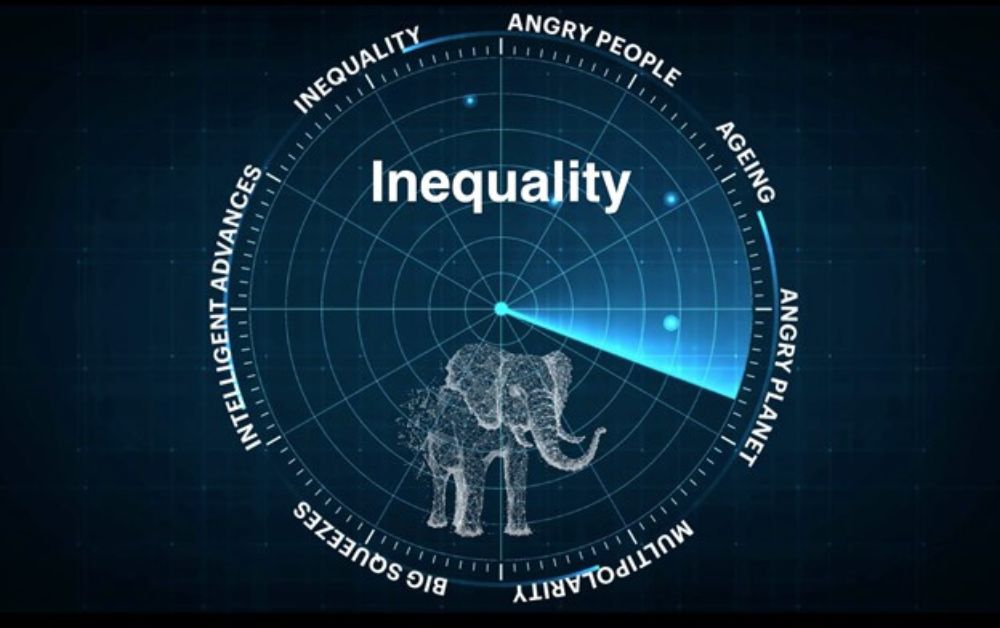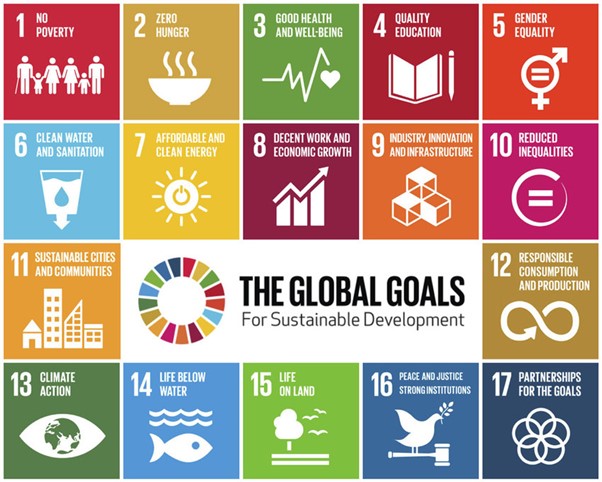Today’s insights are brought to you by my colleague and global futurist, Dean van Leeuwen.
That we are living in a period of sharp transformation is nothing new. People look around and can see we are living in revolutionary times. Ubiquitous, mobile supercomputing. Intelligent robots. ChatGPT-Artificial Intelligence. Shifting economic power. War in the Ukraine. Impact of climate change. Resource scarcity All these developments offer evidence of change happening at exponential speed. As futurist William Gibson said, the future is already here, it’s just unevenly distributed.
Change can be scary, it’s much easier to put the blinkers on and hope life carries on as normal. If you are a business leader or entrepreneur, change also means opportunity. This is the exciting part because our research shows we are living in a kairos moment, and those leaders tuned towards change can seize opportunities to create the future.
The Grey Elephant framework is designed to work as a radar, helping you to think like a futurist, identify opportunities, prepare and take advantage, before they emerge as a stampeding disruptive force.
A Grey Elephant is “a highly probable, high impact and yet ignored threat” And, the problem today is there is not just one Grey Elephant. There is a whole herd of them readying to stampede.
This article is designed to give you a closer look at one of the seven Great Grey Elephants that are sharply transforming the 2020s. This closer look will encourage you to reflect, ask questions and offer up answers.
The key message: If we wait for a Grey Elephant to appear, it will be too late to prepare and take advantage.
Enlightened leaders recognise that the best way to predict the future is to boldly create it and that there has never been a better time to deliver value and impact. Using new strategies, leadership mindsets and business models, leaders are leveraging the kairos moment as an opportunity to get ahead of the competition.
In no particular order of opportunity or magnitude, the seven Great Grey Elephants defining this new age of humanity include:
1. Ageing
2. Angry Planet
3. Inequality
4. Big Squeezes
5. Angry People
6. Multipolarity
7. Intelligent Assistance
Combined, these seven Great Grey Elephants will cause sharp transformation. So how should we respond to turn a disruptive threat into a growing opportunity?
Today’s article will focus on inequality and the ways in which we might plan and act strategically to deliver shared value and impact for all our stakeholders?
Inequality…
Coronavirus highlighted the growing gap between the haves and have nots, one of the gravest Grey Elephants of our era. Over half of frontline care workers are paid less than a living wage, and studies show that low-paid workers are more likely to die from Covid-19 than higher earners: “Who cares about the workers’ health, while the rich run away,” says Domenico Marra who works at a factory in Milan. “But then poor people, who need to bring bread home, go out and take risks.”
Globalization and the pandemic crisis has been good for the elite few. The top three wealthiest individuals have as much wealth as the 160 million poorest people in the US. Globally, the richest two thousand people have more wealth than the poorest 4.6 billion and the 22 wealthiest men have more wealth than all the women in Africa.
In the UK, 90 per cent of workers have seen their incomes flatline for the past three decades. Whereas the elite or 0.01% of British citizens saw their incomes increase by 277% over the same period.
The fortunes of the world’s richest 500 people grew 25% in 2019. The combined wealth of these billionaires in 2019 was $8.7 trillion, which is equivalent to the total income of the poorest 150 countries.

Increasing inequality is widely associated with rising anger. All this helps explain why so many voters in the US and UK have grown frustrated with the ‘out of touch’ elites. The outcome, Trumpism and Brexit, both represent attempts to disrupt the status quo by voting in populist leaders promising to do precisely that.
Inequality is not a remote or abstract threat. It is a real and present danger. It must be reduced if we are to prioritize the well-being of people and our planet.

So what can we do?
Here are 5 ways that businesses and leaders can begin to address the real inequality present in our 2023 systems.
Embrace fair wages and benefits:
- Take the time to thoroughly review our employee compensation structures, ensuring that everyone is treated fairly and equally across all levels of our organization.
- Provide competitive benefits packages that go beyond the basics, such as healthcare, retirement plans, and paid leave, supporting the financial well-being of our employees.
- We could go beyond what is legally required and consider implementing a minimum wage that reflects our commitment to fair compensation.
Foster diversity, equity, and inclusion (DEI):
- Establish initiatives that prioritize diversity and inclusion, creating a workplace where everyone has an equal opportunity to thrive, including at senior leadership levels. As well as creating a workplace that supports psychological safety and embraces difference, understanding that when co-workers feel valued and safe, they are more open to sharing their ideas, improving their productivity and overall bringing more to our organizations.
- Raise awareness of implicit biases by implementing unconscious bias training programs, cultivating a more inclusive and understanding company culture.
- Actively seek out diverse talent through inclusive recruitment and hiring practices, making sure to reach out to underrepresented communities.
Invest in upskilling and education:
- Develop training and upskilling programs to empower our existing workforce, helping them adapt to changing job requirements and pursue their career growth.
- Partner with educational institutions and nonprofit organizations to provide educational opportunities and scholarships for individuals facing disadvantages, promoting social mobility and closing the skills gap.
- Remember that leaders and senior team members can and should be encouraging learning amongst themselves too.
Prioritize responsible supply chain practices:
- Regularly audit and assess our supply chain partners, ensuring fair labor practices, including fair wages and safe working conditions for all workers involved.
- Show support for suppliers who demonstrate a commitment to ethical business practices and fair treatment of their employees.
- Consider initiatives like local sourcing and supplier diversity to contribute to local economies and promote a more equitable distribution of economic opportunities.
Engage in philanthropy and community investment:
- Dedicate a portion of our profits or resources to philanthropic initiatives that tackle systemic inequality, such as funding educational programs, improving healthcare access, and supporting affordable housing initiatives in underserved communities.
- Collaborate with local community organizations and NGOs to identify opportunities for meaningful partnerships and investments that foster economic empowerment and social inclusion.
Let’s not despair at the state of the current system’s inequality, but rather find practical and hopeful solutions that can change things, even in the ways that might seem small in those moments. Their long-lasting implications have the power to break the structures. Remember, addressing income inequality is a journey that requires a multi-faceted approach. By taking these actions, we are taking the first steps toward positive change.

Remarkable Trends
● The Industrial Revolution has pulled billions of people out of extreme poverty — living on less than $2 per day.
● At the start of the Industrial Revolution 89% of the world’s population lived in extreme poverty. Today that figure is at under 10 percent. But that is still over a billion people.
● For the first time since the start of the Industrial Revolution, younger generations on average can expect to be less well-off than their parents.
● Africa is expected to account for nine out of ten of the poorest people in 2030.
● Inequality between the haves and have nots is growing.
It’s important to remember that leaders and businesses can make an impact and affect meaningful change to counteract the structures of inequality currently at play. But it must go beyond a simple appearance of diversity and inclusion. It must go beyond performative acts and fundamentally shift the ways in which we embrace difference and break down structures that have historically, and still to this day, structurally oppress various groups of people.
The future is coming, and we can make it better. So assess your business, your teams, your internal and external biases. And reflect on the ways in which you might begin to break down inequality and work towards a more sustainable, equitable future for all. Every one of us has the potential to make a difference. Let’s continue evaluating and improving our practices, remaining committed to creating a fairer and more equitable future for all.
About the author of today’s Tuesday Tip – Dean van Leeuwan
Dean van Leeuwen is the co-founder of TomorrowToday Consulting – a futurist consultancy working with leading organisations around the world. He is an expert on global trends, innovation, and strategic business transformation.
You can access Dean’s latest research on ‘Closing the Innovation Gap – The 7 strategic and cultural essentials that separate successful large-company innovator’s here or chat with us about our ‘Full blown innovation’ keynote presentation.



